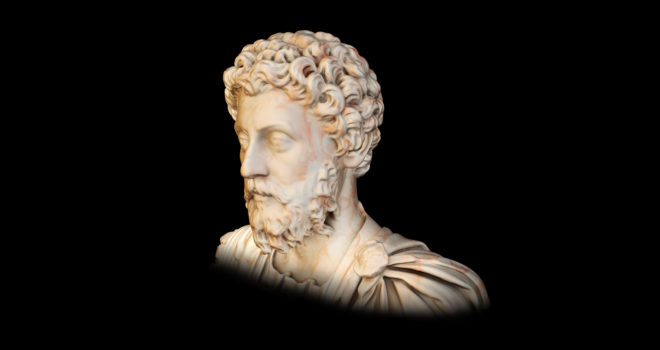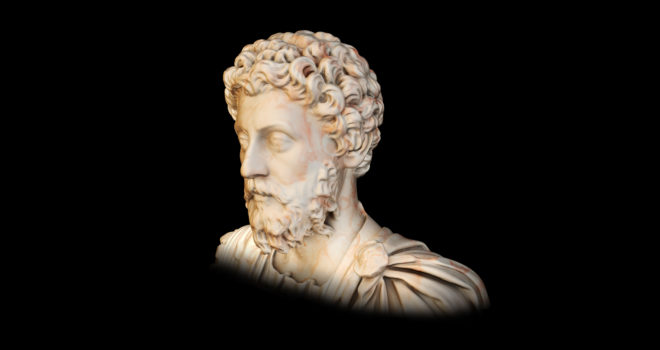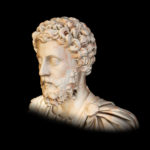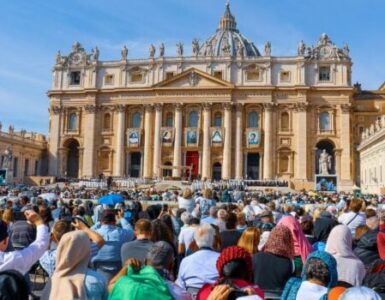Most people seem to think that Christian thinkers were the originators of the thought of a “universal society of men” – the notion that became the idea of the Universal Church. Out of context, such a “universal society” sounds like your average globalist who seeks to remove any barriers on society at all, and the language employed today seems to resonate with the Marxist, atheistic train of thought rather than that of Christians.
The Stoics were the first rational thinkers to propose the idea of a “Commonwealth of Man” – it is known that Zeno of Citium had proposed the idea of being “citizens of the world.” Seneca explains this idea much more eloquently then I could here in Letter 73:
The foolish greed of mortals makes a distinction between possession and ownership, and believes that it has ownership in nothing in which the general public has a share. But our philosopher considers nothing more truly his own than that which he shares in partnership with all mankind. For these things would not be common property, as indeed they are, unless every individual had his quota; even a joint interest based upon the slightest share makes one a partner. Again, the great and true goods are not divided in such a manner that each has but a slight interest; they belong in their entirety to each individual. At a distribution of grain men receive only the amount that has been promised to each person; the banquet and the meat-dole, or all else that a man can carry away with him, are divided into parts. These goods, however, are indivisible, – I mean peace and liberty, – and they belong in their entirety to all men just as much as they belong to each individual.
Listen intently to what Seneca is saying here, and how inherently Christian it sounds. He is not advocating to abolish private property, but that the public property in which everyone participates and needs in their entirety is more important. What is public property? It is not the material things owned by the union of people that is the Marxist State. Everyone has individual needs, but the very possibility of having those needs fulfilled depends on higher powers – for we all depend on peace and liberty to survive and thrive in our communities – and if one man has liberty and another does not, then it is not held in common. If we do not have those goods, then our private needs will become dependent on other factors as well – we become slaves to other ideas and sinful things.
Christianity promises the same thing – and ultimately promises liberty from the Law of the Old Testament. Paul states in Romans 8:1-4 how we as Christians become liberated from the Law into the Law of Life:
There is now therefore no condemnation to them that are in Christ Jesus, who walk not according to the flesh. For the law of the spirit of life, in Christ Jesus, hath delivered me from the law of sin and of death. For what the law could not do, in that it was weak through the flesh; God sending his own Son, in the likeness of sinful flesh and of sin, hath condemned sin in the flesh; that the justification of the law might be fulfilled in us, who walk not according to the flesh, but according to the spirit.
This is very reminiscent of the quote from Seneca further above, but Paul sounds even closer to Seneca in in Galatians 3:28: “There is neither Jew nor Greek: there is neither bond nor free: there is neither male nor female. For you are all one in Christ Jesus.”
At face value, this sounds very much like your Progressives today. There is no male nor female?! Paul is obviously speaking about the Christian way of life in this world, not in the next. Otherwise he would have been speaking of the next life – he was referring to the abolition of the Old Law. But notice the nuances between Seneca & Paul in contrast with the Progressives. The Progressive of today wants to abolish all forms of law – Seneca and Paul are speaking of a different sort of Law – the Law of life as the basis for an authentic society. Seneca makes this apparent: “As long as you live, keep learning how to live.”
This aptly-called “New Law” is not the total abolition of the old Law, as Christ said, but its fulfillment. What Paul is saying is that the traditional things we normally discuss and debate will no longer be a relevant part of the way of a Christian. For everyone becoming one in Christ is superior to our petty discussions about different descriptions – they will no longer matter.
Paul is speaking about working towards perfection in this life – as if it were attainable. Even if it isn’t attainable, it seems that we should be striving towards it – I’m sure that Paul would say that a complacent Christian isn’t a true Christian. Seneca, the rest of the Stoics, and Paul would all agree that working towards a true society of brotherhood and perfection in this life is an important part of the Christian life, even if it is not fully realized or attainable in our lifetimes. With such perversions of Nature and of our Christian faith today, we see even more shackles put on our Christianity and thus we need to fight for our ideals and truths against a non-Christian world. We must be ready to defend our faith and the Universal Church in a world so turned against it – we should not be passive, but also realize that a Christian society transforms the culture and the worldviews of those within it. A Universal Church is the highest ideal of freedom and liberty – against the Marxist Commune and the Fascist State. The Stoics are important thinkers who pioneered this idea, perhaps even influencing the thoughts of St. Paul – and I truly believe they could be used as important thinkers to help defend the idea of a Christian world.
✠
Editor’s note: this article is adapted from a post on the author’s blog.












